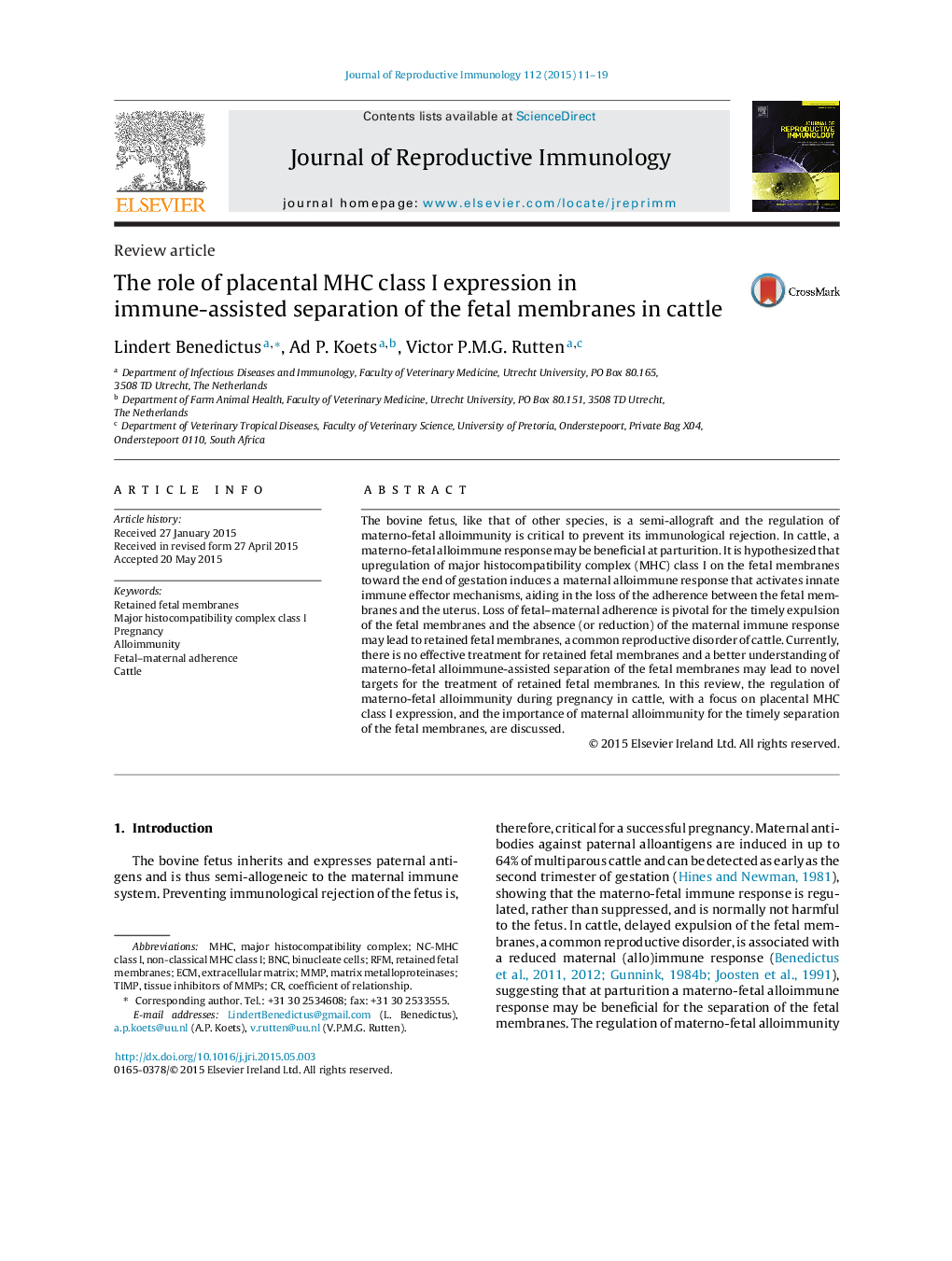| Article ID | Journal | Published Year | Pages | File Type |
|---|---|---|---|---|
| 6188286 | Journal of Reproductive Immunology | 2015 | 9 Pages |
â¢MHC class I expression on fetal trophoblasts rises toward the end of gestation.â¢Materno-fetal alloimmunity appears to be important for the timely separation of fetal membranes.â¢Maternal macrophages likely play a crucial role in the loss of fetal-maternal adherence.â¢Dam-calf MHC class I compatibility results in a high risk of retained fetal membranes.
The bovine fetus, like that of other species, is a semi-allograft and the regulation of materno-fetal alloimmunity is critical to prevent its immunological rejection. In cattle, a materno-fetal alloimmune response may be beneficial at parturition. It is hypothesized that upregulation of major histocompatibility complex (MHC) class I on the fetal membranes toward the end of gestation induces a maternal alloimmune response that activates innate immune effector mechanisms, aiding in the loss of the adherence between the fetal membranes and the uterus. Loss of fetal-maternal adherence is pivotal for the timely expulsion of the fetal membranes and the absence (or reduction) of the maternal immune response may lead to retained fetal membranes, a common reproductive disorder of cattle. Currently, there is no effective treatment for retained fetal membranes and a better understanding of materno-fetal alloimmune-assisted separation of the fetal membranes may lead to novel targets for the treatment of retained fetal membranes. In this review, the regulation of materno-fetal alloimmunity during pregnancy in cattle, with a focus on placental MHC class I expression, and the importance of maternal alloimmunity for the timely separation of the fetal membranes, are discussed.
Graphical abstractDownload high-res image (160KB)Download full-size image
